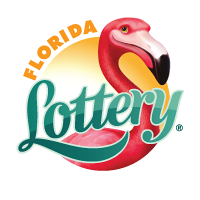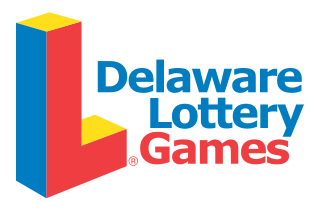
A lottery is a form of gambling that involves the drawing of numbers at random for a prize. Some governments outlaw lotteries, while others endorse it to the extent of organizing a national or state lottery. It is common to find some degree of regulation of lottery by governments. The most common regulations are prohibition of sale to minors and licensing of ticket vendors. Although lotteries were common in the United States and some other countries during the 19th century, by the beginning of the 20th century, most forms of gambling, including lotteries and sweepstakes, were illegal in the U.S. and most of Europe as well as many other countries. This remained so until well after World War II. In the 1960s, casinos and lotteries began to re-appear throughout the world as a means for governments to raise revenue without raising taxes.
Powerball is an American lottery game offered by 45 states, the District of Columbia, Puerto Rico and the U.S. Virgin Islands, and overseen by the Multi-State Lottery Association (MUSL), which also manages other large jackpot games such as the Mega Millions. Drawings are held three times weekly on Mondays, Wednesdays, and Saturdays at 10:59 p.m. Eastern Time, at the Florida Lottery's headquarters in Tallahassee.

The Georgia Lottery Corporation, known as the Georgia Lottery, is overseen by the government of Georgia, United States. Headquartered in Atlanta, the lottery takes in over US$1 billion yearly. By law, half of the money goes to prizes, one-third to education, and the remainder to operating and marketing the lottery. The education money funds the HOPE Scholarship, and has become a successful model for other lotteries, including the South Carolina Education Lottery.

The Florida Lottery is the government-operated lottery of the U.S. state of Florida. As of 2022, the lottery offers eleven terminal-generated games: Cash4Life, Mega Millions, Powerball, Florida Lotto, Pick 2, Pick 3, Pick 4, Pick 5, Fantasy 5, Cash Pop, and Jackpot Triple Play. participants must be 18 or older to play.

The California State Lottery began in October 1985 after voters authorized it in Proposition 37, the California State Lottery Act of 1984. It offers a range of games including number draws, scratchcards and a mock horse race. The earnings provide supplementary funding for public education.
Lotteries in Australia include various lottery related products licensed by The Lottery Corporation, The Lottery Office and Lotterywest Australian lottery companies. Lotteries operators are licensed at a state or territory level, and include both state government-owned, not-for-profit and private sector companies. Most major Lotteries have now moved into the online marketplace.
The Montana Lottery is run by the government of Montana. It is a member of the Multi-State Lottery Association (MUSL). The Montana Lottery's portfolio consists of scratch tickets, plus Mega Millions, Powerball, Lotto America, Montana Millionaire, Lucky for Life, Big Sky Bonus, Montana Sports Action, Treasure Play and Montana Cash.

The Connecticut Lottery Corporation, also called the CT Lottery, is the official lottery in Connecticut. It was created in 1971 by then-Gov. Thomas Meskill, who signed Public Act No. 865. The first tickets were sold on February 15, 1972. The Connecticut Lottery offers several in-house drawing games; Connecticut also participates in Mega Millions and Powerball; each are played in 44 states, the District of Columbia, and the U.S. Virgin Islands.
The New Jersey Lottery is run by the U.S. state of New Jersey. Its In-house draw games are Pick-3, Pick-4, Jersey Cash 5, Pick-6, Quick Draw, and Cash Pop. Its multi-jurisdictional draw games are Cash4Life, Mega Millions, and Powerball. The Lottery also sells Fast Play and scratch-off tickets. The New Jersey Lottery is headquartered at One Lawrence Park Complex in Lawrence Township, Mercer County.
The Arizona Lottery is a state agency of Arizona in the southwest United States. It is a member of the Multi-State Lottery Association (MUSL). Lottery draw games include Mega Millions, Powerball, The Pick, Triple TwistFantasy 5, and Pick 3. A variety of instant scratch tickets, or Scratchers, are also offered.

The Delaware Lottery is run by the government of Delaware. Its creation was authorized by the state legislature on May 31, 1974. Its "traditional" games include Play 3, Play 4, Multi-Win Lotto, Lucky For Life, Lotto America, Mega Millions, and Powerball. Delaware also offers Keno, sports betting, and video lottery.

The Hoosier Lottery is the official state lottery of Indiana, and is the only US lottery that uses the state's nickname as its official name. It is a member of the Multi-State Lottery Association (MUSL). The Hoosier Lottery sells scratch-off tickets; its draw games include Mega Millions, Hoosier Lotto, Powerball, Cash 5, and Poker Lotto.
The Louisiana Lottery Corporation (LLC) is a government-run lottery that is used to generate revenue without increasing taxes. The proceeds of the Lottery go to the Minimum Foundation Program that funds public education in Louisiana. The daily activities involved with running the cooperation are handled by the president of the Louisiana Lottery Cooperation. The president is under the supervision of the Lottery's nine-member governing board of directors.

The Rhode Island Lottery is run by the government of Rhode Island. The modern form of the Rhode Island Lottery was inaugurated in 1974, following a constitutional amendment passed in 1973. It is a charter member of the Multi-State Lottery Association (MUSL). Rhode Island Lottery games include Mega Millions, Powerball, Wild Money, Keno, and scratch tickets. The Rhode Island Lottery also offers online lottery games and oversees and regulates video lottery as well as sports betting.

The Illinois State Lottery is an American lottery for the U.S. state of Illinois, operated by Allwyn Illinois.

The Kentucky Lottery, began in April 1989 after a November 1988 vote in which over 60% of voters cast ballots in favor of it. On April 4, 1989, ticket sales began at over 5,000 licensed retailers with over $5 million in sales on the first day. Kentucky Lottery players had two Scratch-off games to choose from, including, Beginner's Luck ($1) and Kentucky Derby Dreamstakes ($2).
The Virginia Lottery is an independent agency of the Commonwealth of Virginia. It was created in 1987 when Virginians voted in a statewide referendum in favor of a state lottery. The first ticket was sold on September 20, 1988. All profits from Virginia Lottery ticket sales go to K-12 public education, as required by Virginia's constitution. In Fiscal Year 2024, the Lottery's profits totaled more than $934 million, accounting for approximately 10 percent of school funding in Virginia. That brought total Lottery profits in Virginia to more than $16 billion.

The National Lottery is operated by ITHUBA Holdings, to whom the licence was granted in 2015. The lottery is regulated by the National Lottery Commission, and was established in 2000.

The Massachusetts Lottery was established on September 27, 1971, following the legalization of gambling by the Massachusetts General Court, the legislature of the Commonwealth. The Lottery is administered by the Massachusetts State Lottery Commission. It is a member of the North American Association of State and Provincial Lotteries (NASPL) since 1972.

The Lottery Office is an Australian online lottery operator licensed by the Government of the Northern Territory and allows Australians and New Zealanders to play to win from the draws of the largest lotteries in the world, including US Powerball and Mega Millions. Its parent company, Global Players Network Pty Ltd (GPN), has been licensed and regulated to operate lotteries since 2003.












